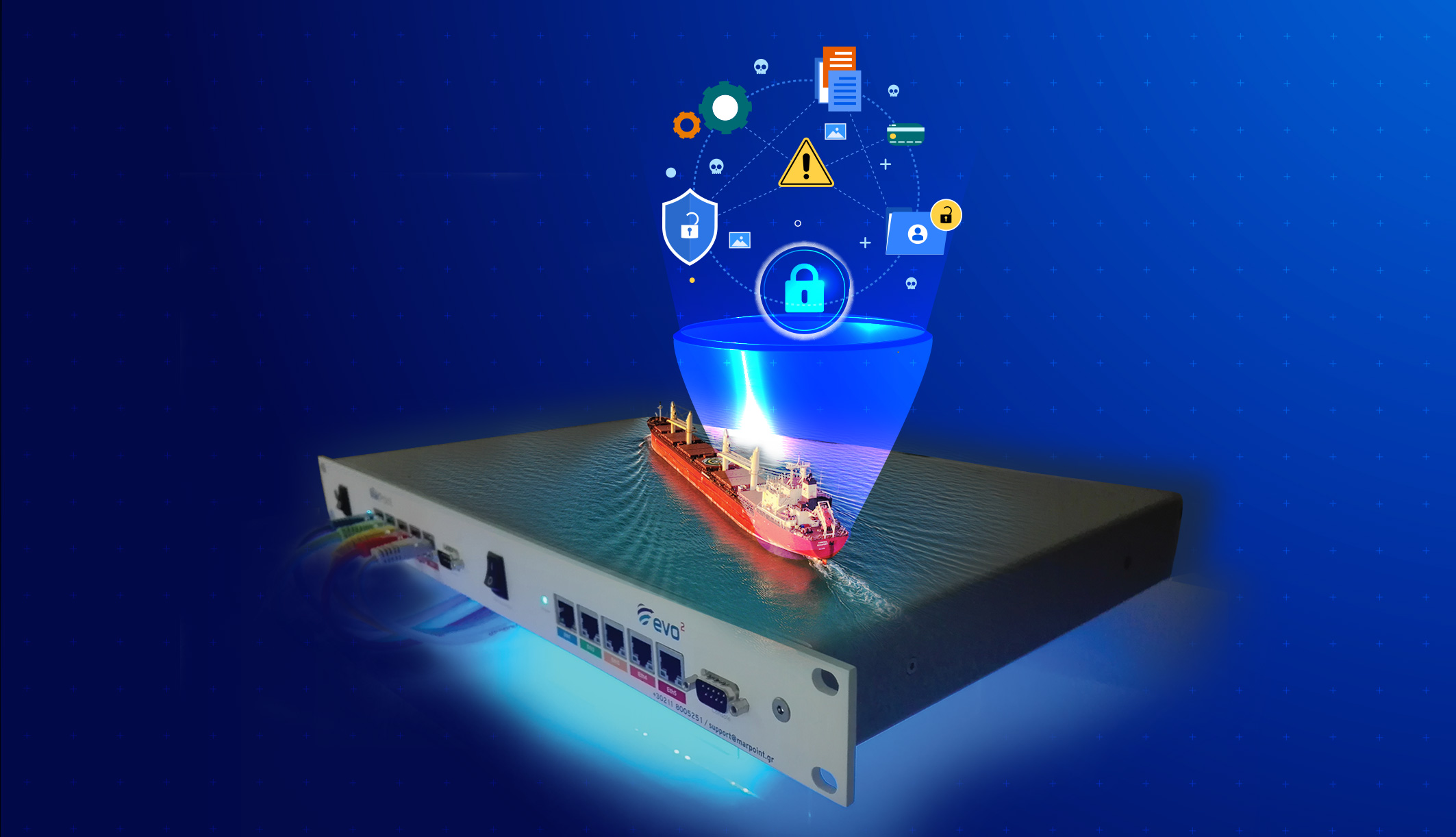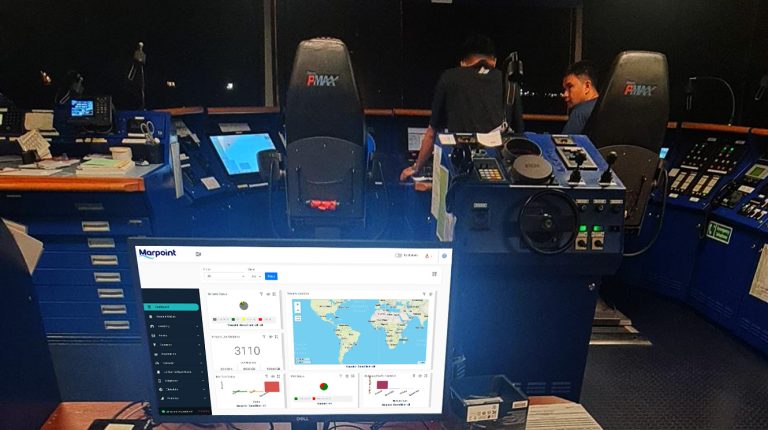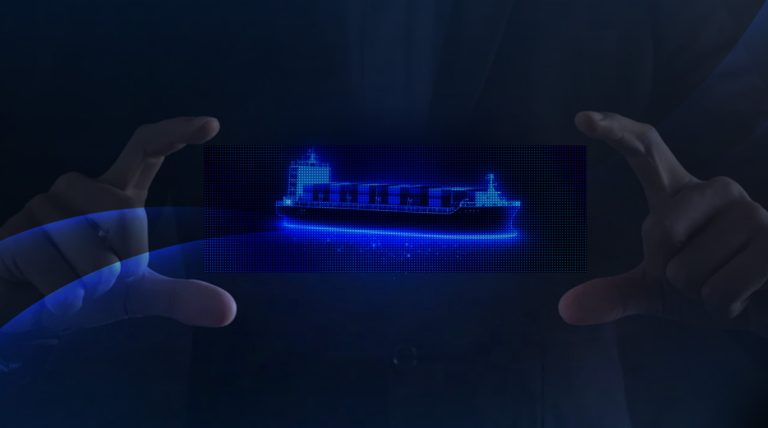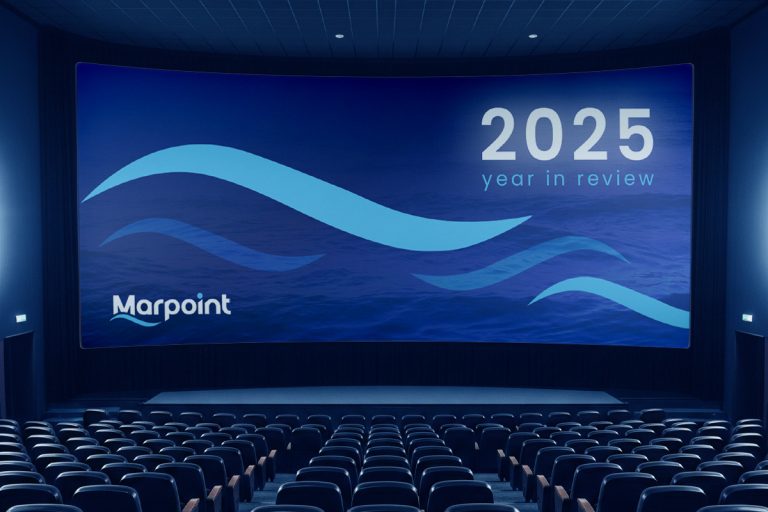by Christos Vythopoulos, Head of Operations
The evolution of Internet and the improvement of satellite connections coverage and speed has led the maritime industry to go digital on all aspects and especially on their fleet.
Business email, navigation software, monitoring systems that guarantee safe travels, crew welfare services, ship to shore back up functionalities, VoIP communication and generally all operations depend on data connection availability and data integrity. New technologies in conjunction with cybersecurity tools assist the Maritime industry to be more efficient as regards to the fleets’ operation and safety.
Enhancing cybersecurity with Web Filtering
Web and application filtering is necessary, crucial, and vital for the smooth operation of commercial vessels, as it guarantees their safe navigation and smooth operation of their everyday business. It improves cybersecurity, while at the same time is an integral part of it. It maximizes productivity, makes all operations faster, especially on limited bandwidth satellite terminal connections, it mitigates risks and avoids liabilities.
By enabling web filtering, companies can enforce acceptable Internet usage policies and block access to illegal website content, websites containing content unsuitable for the workplace and categories of sites that are a major drain on productivity.
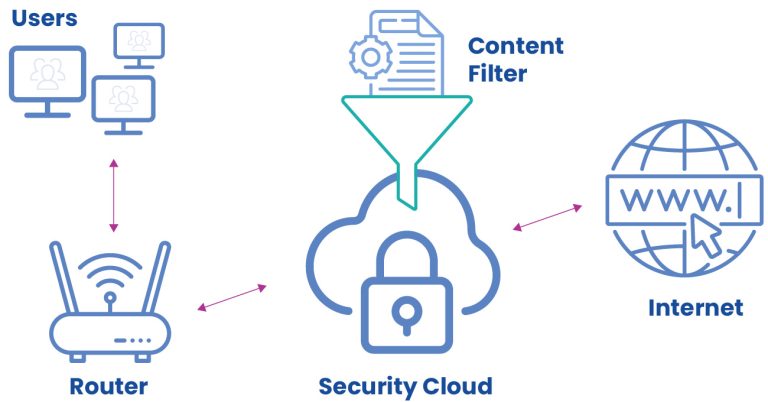
Furthermore, the increase in phishing attacks due to the daily creation of new phishing web pages, the exploit kits that download silently in the background malware, and the ransomware attacks, have led to the ascertainment that content filtering for business environments can no longer be considered an optional cybersecurity solution. It is an additional layer of protection that prevents crew members from visiting malicious websites.
Apart from the above, the introduced maritime regulations and laws, require and force the vessel’s owners, operators, and managers to consider seriously cyber risks and take all the necessary measures, as mentioned in the International Maritime Organization (IMO) guidelines and the International Association of Classification Societies (IACS) unified requirements on cyber safety UR E26 and UR E27.
And how it works? Web filtering analyzes users’ request on the DNS level and simply restrict access to the blocklisted websites, content, categories, and domains.
Marpoint and EVO2 offer a complete web filtering suite based on DNS level and include all the required classification categories, as well as the option to input custom rules using full or partial URLs and directives as per the below screenshots.
Configuration can be per vessel, or for the whole fleet at the same time, and synchronization of the applied ruleset is instant. Our solution provides real-time filtering and instant categorization of web content while at the same time providing detailed reporting.
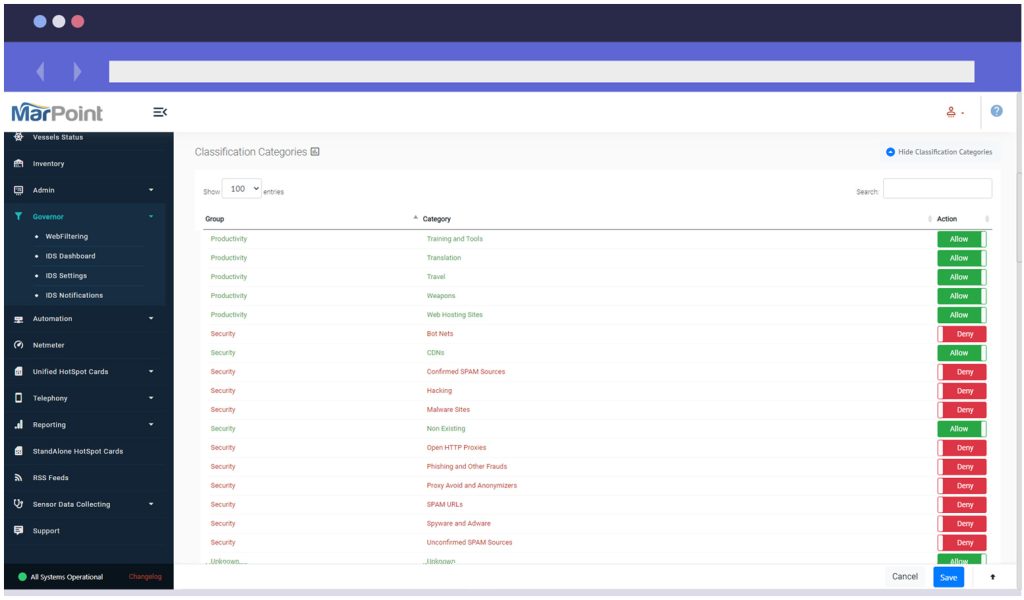
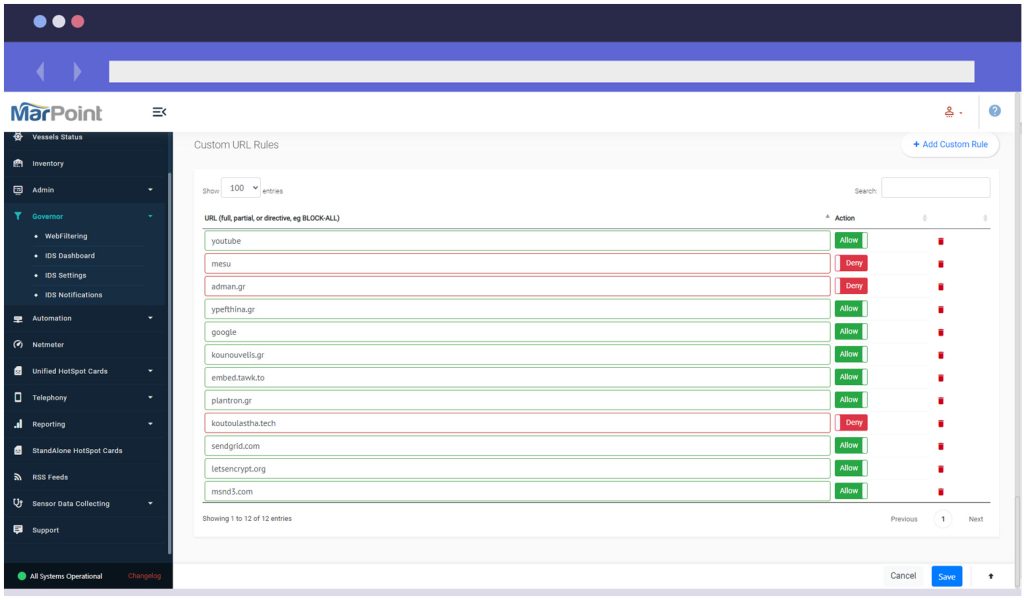
As mentioned previously, through Marpoint Control Panel the IT manager of a maritime company can see detailed statistics regarding their fleets’ web filtering policy (total and per vessel) , based on the corresponding configuration.
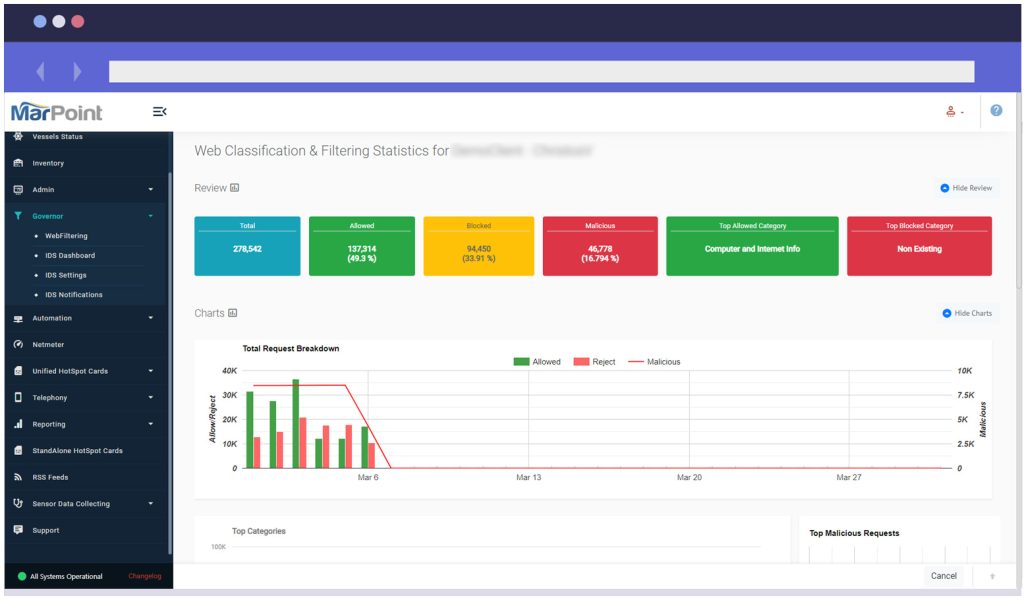
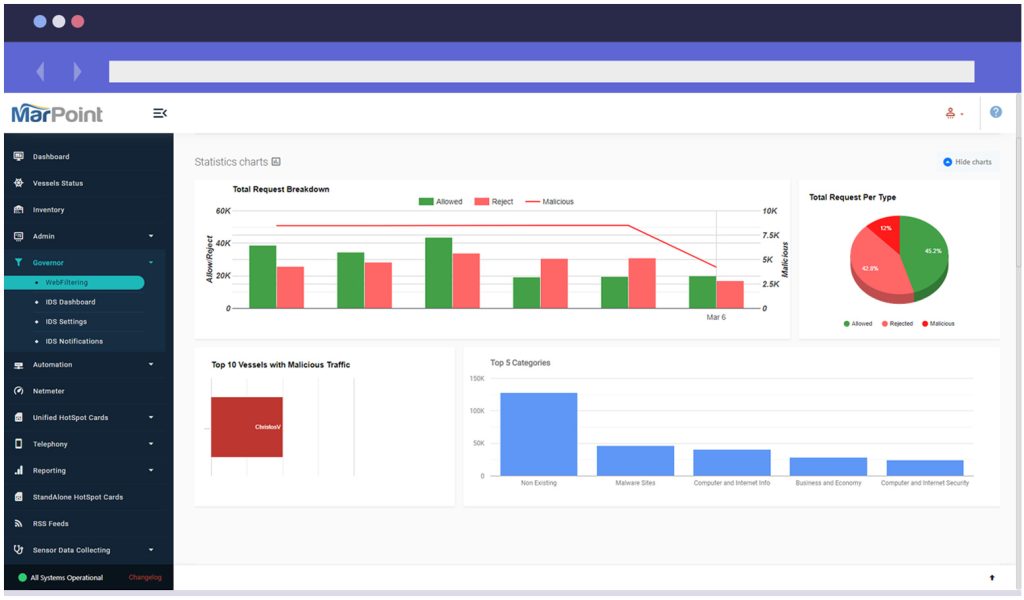
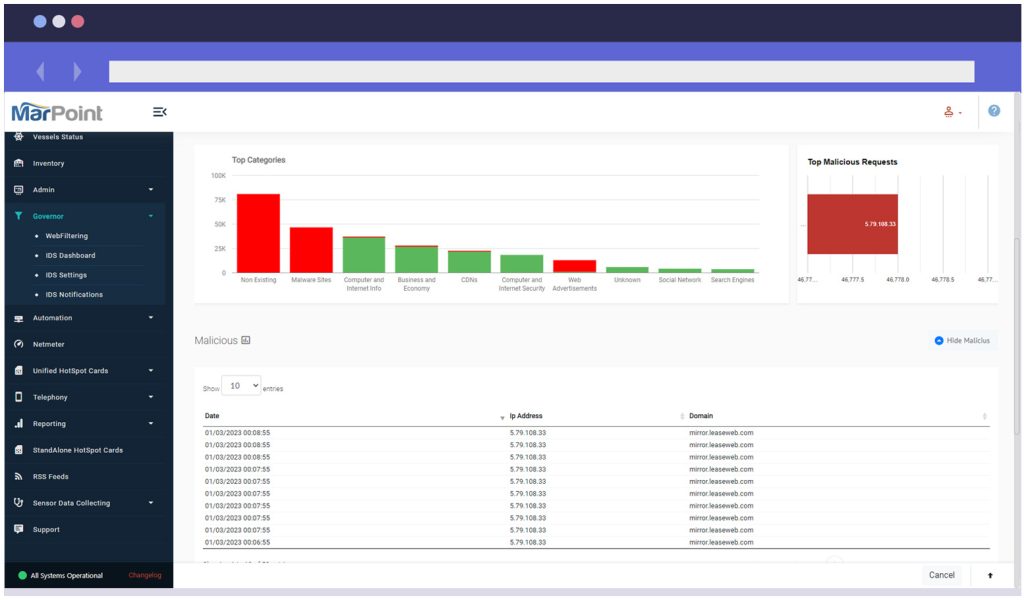
How Does Marpoint's Web Filtering Determine Which URLs to Block?
Marpoint uses one of the biggest web filtering providers worldwide. Those providers have created massive blocklists containing thousands of domains categorized into separate categories. These block lists use technologies that scan domains for signs of malicious content automatically, often in real-time, preventing users from accessing malicious web pages even if they have been recently added or infected with malware.
It is highly recommended if not mandatory for the Maritime Industry to invest in a reliable and complete web filtering solution and Marpoint is the ideal partner for this.

